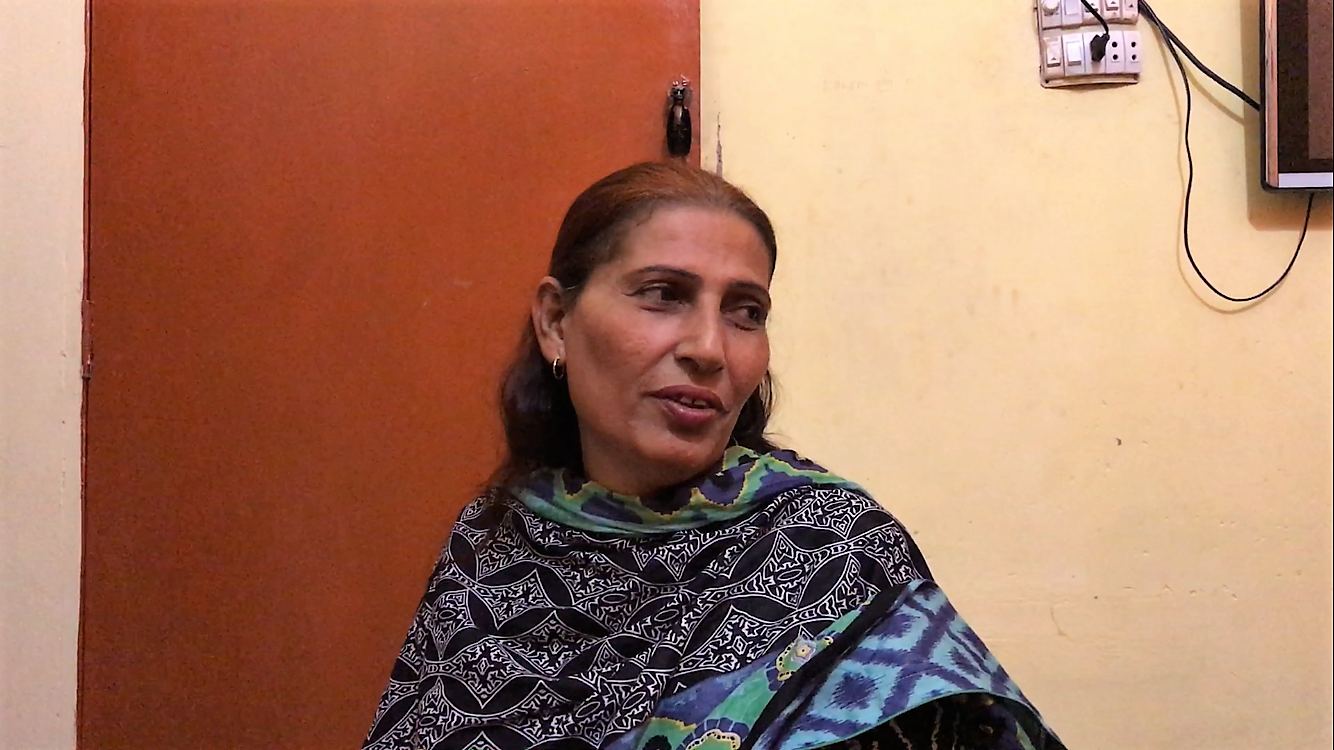An ambiguous identity can lead to a life of uncertainty. Being born intersex in Pakistan in many situations is the death of any dreams for the future. Not only for the individuals themselves, but for their family as well. Expectant parents often prepare for parenthood by finding out the gender of their child and start buying clothing and decorating their nurseries with masculine or feminine colors. However, when a child is born not conforming to the binary genders, this child is usually cast out and disowned by family. Friends and relatives become distant towards what they consider a disease.
Yet, in rare cases, family members become the inspiration for them to break the barriers that are conforming society.
In Pakistan, intersex or transgender persons are referred to as Khawaja Saras; even though the word Khawaja Sara historically refers to the eunuchs that used to guard the royal women of the Mughal Empire, today it is a common umbrella term designated in Pakistan for anyone who does not fit the typical male or female category.
Bindiya Rana, a Khawaja Sara, explains in a two-hour interview at the Gender Interactive Alliance organization what inspired her to do more. The organization, located in Karachi behind Jinnah Hospital, is hidden in a maze of narrow streets that can barely fit two people at a time. Rana, the founder of Gender Interactive Alliance, decided to move its headquarters from Saddar, the downtown area, to a neighborhood where the Khawaja Sara community resides. The headquarters consist of a meeting room and a bedroom with a small kitchen in the back—all painted with colorful colors: orange and pink.
A meeting is in procession for new members to explain the benefits of having an I.D. Card and being part of the organization. In a room filled with Khawaja Saras from all over the state of Sindh, Rana attentively reassures each person, These I.D. Cards will help you identify yourself in a crisis when you don’t have a government issued card or need assistance from other members. This card will help you be safer and be a part of something bigger.”
With Bindiya Rana an inspiration to so many, it’s only natural to ask, “Who inspired Bindiya Rana?” Rana has had many breakthrough milestones in her life, but it’s her father who inspired her to achieve more than what society had destined for her.
Rana’s parents had decided that she and her brother should live separately in their younger years so as to avoid taunts and bullying from children and other neighbors. During that time away from home, Rana started to become friends with other Khawaja Saras in her new neighborhood. She would wear bright attire, perfect her makeup, decorate herself with jewelry, and accompany her new friends to events, performing and dancing at joyous occasions such as weddings or the birth of a child. News of her new lifestyle spread back home.
Recalling the moment she received a phone call from her father, Rana looks away. Her father invited her home as her new self. Fearful of how her older brother and other members of her family would react, she refused. Although she had initially said no, the more she thought about her father seeing who she really was made her want to accept his welcoming invitation. She decided to visit her father as her new self.
The moment she stepped into her home, she knew something was wrong. Everyone was gathered in the living room of her parents’ house: her sisters, her brothers, even her brothers-in-laws. She felt reserved, not wanting everyone to see her like this. Her father then passed out stacks of singles equaling 100 rupees. (In the middle of her story, Rana tells me, “they don’t have the same single rupees anymore.”) Rana's father than commanded her to dance so that her family could throw money at her, mimicking what occurs at the events where she performs.
Shocked and embarrassed by her father’s actions, Rana asked her father, “How can I dance in front of family?”
“When you can dance in front of strangers, why can’t you dance in front of family?” Her father’s reply brought tears of shame to her eyes.
She was about to leave the room, when her father commanded her to stop. She waited while her father explained that he wasn’t finished with what he had to say. He approached her and gently said, “When someone asks about my other children, I can proudly tell them what they’re doing, but someone asks about you and what do you want me to tell them? My child is a Khawaja Sara so they dance, perform, and beg for money. I want you to become something so that I can proudly say, ‘My child is a Khawaja Sara and has accomplished more than any of my other children.’ I don’t want people to mock you—I want people to look up to you.”
These words became the inspiration for the path Rana chose. However, the journey was not easy. First, she approached different NGOs serving the community where she was told that they specifically cater to orphans or widows, but not someone like her.
Disappointed, yet not discouraged, Rana decided to start an organization for all genders and those who feel they don’t fit in. She named her organization “Gender Interactive Alliance”—not to seclude, not separate, nor segregate, but rather to open doors for everyone.
When asked about her dreams for the future, Rana replied, “My dream is [to be] a khawaja sara waking up, going to their job, and coming back home to lead a normal life like everyone else.”
